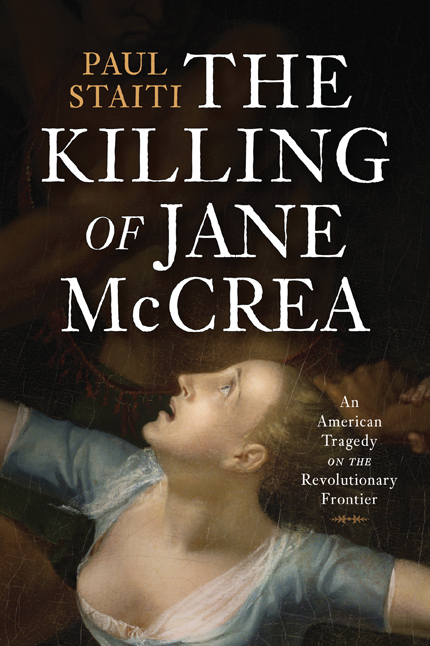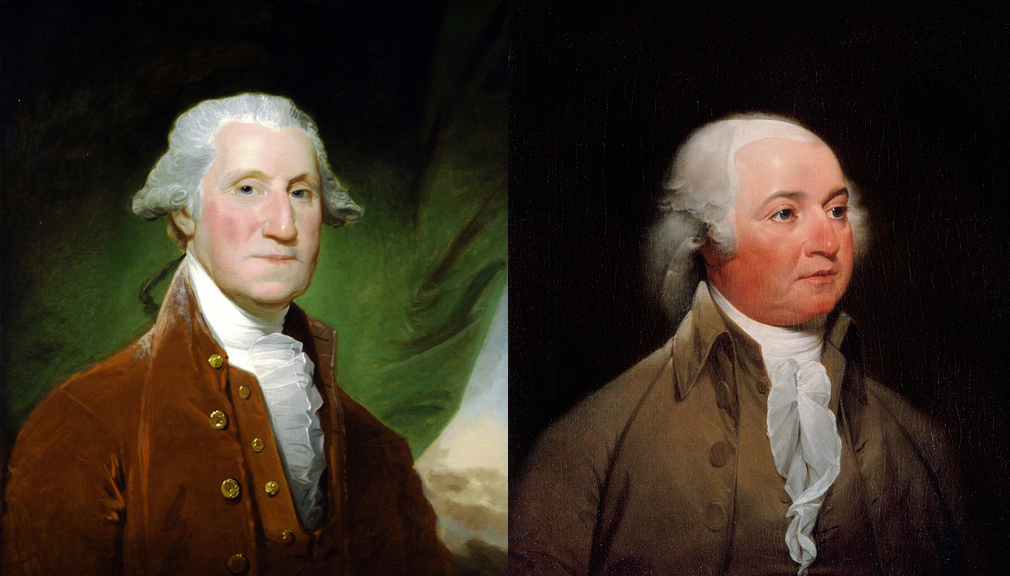Dear Mr. History:
The recent article on this site by Hugh Harrington about the 10 best Revolutionary War films got me thinking – if Hollywood was making such movies today, who, from the current Academy Award nominees, could play some of the famous characters of the era? Sincerely, California Dreaming
Dear Dreaming:
Glad you asked, because in addition to being Mr. History, I’m also this Journal’s official correspondent to the Hollywood set! As such I’m tight with several Tinsel Town illuminati. And by “several,” I mean, “none.” What-evs. The Revolution produced plenty of fascinating characters that would be great parts for any actor. Here are some possible matches.
From the “Best Actor” Category

Joaquin Phoenix – as Captain John Paul Jones. The terms dark, brooding, driven, and gifted describe both Phoenix and John Paul Jones, one of America’s first naval heroes. It was possibly his deep desire for status and recognition that drove Jones to take the war directly to Britain in 1778 when he sailed his ship Ranger across the Atlantic and raided ports in England and Scotland. A year later, in command of the Bonhomme Richard, he fought an epic battle against the British frigate Serapis off the Yorkshire coast. In the midst of a furious point-blank-range battle, with the Richard on fire and near sinking, the captain of the Serapis yelled to Jones if he was surrendering. Jones shouted back one the greatest comebacks of all time, which was . . . we’re not exactly sure what. Historian John Ferling wrote that different versions of Jones’s reply were recorded, such as “No sir, I will not – we have had but a small fight as yet,” or “I haven’t as yet thought of surrendering.” Whatever he said, the Americans won the battle and Jones’s response went down in history as the catchier, “I have not yet begun to fight!” The phrase also perfectly captured Jones’s indomitable spirit. He was intense but polite, tough but gracious, ambitious in actions yet temperate in habits. The enigmatic Joaquin Phoenix would excellently capture this naval hero’s intensity, contradictions, and bravery.
Hugh Jackman – as Major Patrick Ferguson. The Scottish Maj. Ferguson was a tough, intelligent King’s officer who expertly adapted tactics to fit combat in America. Instead of harsh discipline, he led his soldiers by appealing to their camaraderie and sense of honor. At the battle of Brandywine in 1777, he prevented his sharpshooting riflemen from firing on a mounted Continental officer because, he said, “the idea disgusted me.” (It was later said that the Rebel officer was Washington, but that was unlikely.) In 1780, in command of a Provincial Corps in North Carolina, Ferguson made the mistake of warning the local American militias to stop attacking his soldiers or he would, “lay waste to their country with fire and sword.” The tough backwoods “Over the Mountain Men” didn’t cotton to that, and trapped Ferguson’s corps at King’s Mountain. Hugh Jackman would be at his dashing, chiseled-jaw best portraying Ferguson during the battle that followed. Surrounded by the Americans, Ferguson moved all over the battlefield, rallying his men and counterattacking, right up to the point when Rebel marksmen shot him from his saddle. I have to imagine that if nothing else, Jackman would love to play such an ironic death scene, even though the story doesn’t fit into the musical format. But hey, if they can set Les Miserables, to music, why not this?

Bradley Cooper – as Thomas Paine. Cooper can play a passionate character, and Paine was nothing if not passionate. The English-born Paine had only been in America for about a year when he began writing pamphlets that railed against slavery. His great pamphlet Common Sense, published in early 1776, was a best-seller and helped push the colonists toward independence. Paine’s American Crisis papers that followed were also classics. But he started rubbing people the wrong way, as extremely passionate people sometimes do. In 1779, Paine invoked the ire of the Continental Congress by accusing a Congressional member of war profiteering and by publishing a paper that disclosed some secret government negotiations with France. Back in England in 1791, he supported the French Revolution and called for a general “bloody” revolt against monarchies, which resulted in the British indicting him for treason. After fleeing to France, Paine advocated banishment for the deposed King Louis XVI, as opposed to that awkward trip to guillotine, which was not what Robespierre and his radicals wanted to hear, which landed Paine in prison. If there was anybody left who wasn’t mad at him, Paine’s 1794 book The Age of Reason that attacked organized religion and challenged the Bible took care of that. But despite his quirks, Paine was an extremely influential and gifted communicator that would make a great movie subject. And let’s remember that People magazine voted Bradley Cooper “The Sexiest Man Alive” in 2011. And writers, like Paine, are sexy – just ask any writer.
Denzel Washington – as Crispus Attucks. Attucks became the first African-American casualty of the Revolution when he was killed in the Boston Massacre in 1770. A lot can be said about the crowd that confronted the British troops on King Street that night, and there is still some disagreement about whether Attucks was one of the riot’s leaders or merely a participant. But this much is known – Attucks was a 6-foot tall, middle-aged old sailor who had escaped slavery and was in the forefront of the action, which unfortunately led to a British musket ball finding its mark on him. You can certainly imagine Denzel Washington conjuring his famous smoldering anger, and leading a crowd of Boston toughs into the fracas – and into the history books.
Daniel Day Lewis – as anybody. Could he play George Washington? Too easy. The French commander at Yorktown, General Rochambeau? C’est bon! Martha Washington? You bet your sweet Sally Fairfax he could, given proper costuming. Daniel Day Lewis could play the role of a 6-pounder field gun and still win an Academy Award.
From the “Best Actress” Category

Jennifer Lawrence – as Peggy Shippen. In the summer of 1779 Margaret “Peggy” Shippen was 19 years old, part of Philadelphia’s social elite, well-known for her beauty and sparkling personality, and well-married to the city’s military governor, the famous and charismatic General Benedict Arnold. She was also completely loyal to the King and probably supplying information to the British. When the disgruntled Arnold began thinking about treason, it is likely that Peggy was his Lady Macbeth, convincing him to turn to the British and putting him in contact with Crown intelligence operatives. When Arnold was revealed as a traitor, Washington went to the turncoat’s quarters at West Point, and Peggy gave an Oscar-worthy performance denying her involvement, complete with feigned hysteria and hallucinations. And it worked. Washington fell for the act and sent her to Philadelphia, from where she was later banished to join her husband with the British forces. After the war she was welcomed in England. A high-society spy who helped her treasonous husband and fooled the Father of Our Country – you have to admit it’s a great, sinister role that Lawrence could sink her teeth into. Talk about your Hunger Games!
From the “Best Supporting Actress” Category

Sally Field – as Mercy Otis Warren. The wife of Patriot James Warren of the Massachusetts Provincial Congress, Mercy Otis also attained prominence during the Revolution in her own right. Well-educated in the Latin and Roman classics, in the early 1770’s Mercy applied her intelligence to writing letters and poems that supported American liberty; though published anonymously. As the contentious relations with Britain heated-up, she authored three satirical plays that skewered the Royal administration of Massachusetts that were the first published plays by an American woman. She continued political writing during and after the Revolution, including a three-volume history of war – another first for a woman. You can imagine Sally Field focusing all of her Norma Rae righteousness into a portrayal of Warren, who is sometimes called the “Conscience of the American Revolution.” Fields is certainly used to challenging roles, such as her recent turn as Mary Todd Lincoln. And my personal favorite – when she played the title character in the late 1960’s TV sitcom, “The Flying Nun,” as a member of the cloth who, yes, had the power of flight and took to the sky for madcap adventures. I don’t propose anything like flying for our Revolutionary war movie, but something in 3-D? Yeah baby. This is Hollywood.
Let us know if you have your own casting ideas!









9 Comments
Wonderful!
From an earlier film era……How about Errol Flynn as Tarleton….or, Francis “Swamp Fox” Marion? Maybe Humphrey Bogart as Benedict Arnold…the fighting hero as well as the traitor? Washington is tough…maybe John Barrymore?
If anybody could play Banastre Tarleton, it would be (or would have been) Errol Flynn!
Errol Flynn as Tarleton, the worse villain of the war? Not a chance. He would be more in line to be cast as Francis Marion, the Swamp Fox.
I remember reading that in the 1930s that Warner Brothers announced James Cagney would be in a film bio of “John Paul Jones. That would have been great casting.
Who would you pick to direct such a film? If we were to keep up with the theme of this years nominees then I would have to pick Spielberg. However, I think Martin Scorsese would be best suited.
Great question Rusty! I think my answer depends on the nature of the film. Just sticking to this year’s nominees, I’d certainly vote for Spielberg for a straight historical story-telling film, like for John Paul Jones, Thomas Paine, or Crispus Attucks. Martin Scorsese would be best, I think, for a film involving some intrigue, like for Peggy Shippen. If I can go outside the nominees for a moment – and why not – Ben Affleck could certainly direct a suspenseful film. If we can get really wild here, I’d like to see Ridley Scott try a Revolutionary War film. His movie “The Duelists” was a great period-piece. So many choices!
Directing the movie? My vote would go to John Milius, director of “Red Dawn” and “The Wind And The Lion”. He knows action/adventure movies and history as very few have.
I think all you need for a good movie trilogy of the American Revolution on the scale of Lord of the Rings or Star Wars is the cast from the John Adams mini-series David Morse as Washington was unbelievable!
You said it! If only we could have such a trilogy, with the same quality of production as the Adams series. Great comment sir!